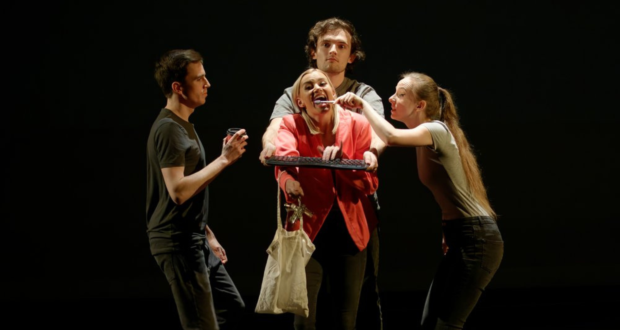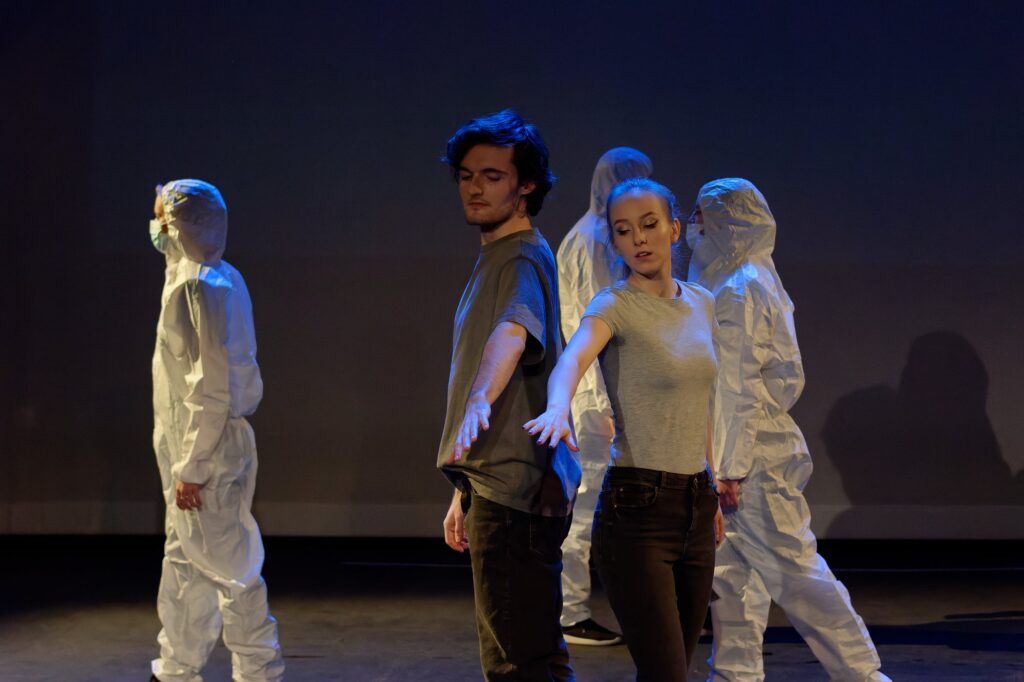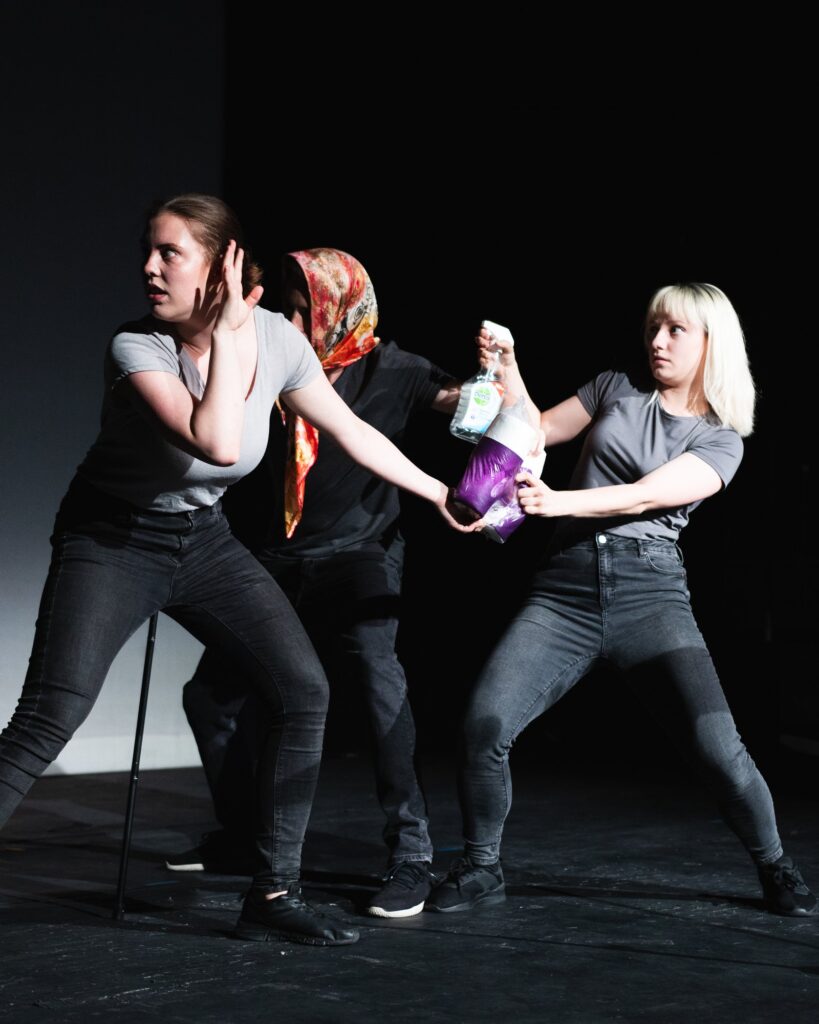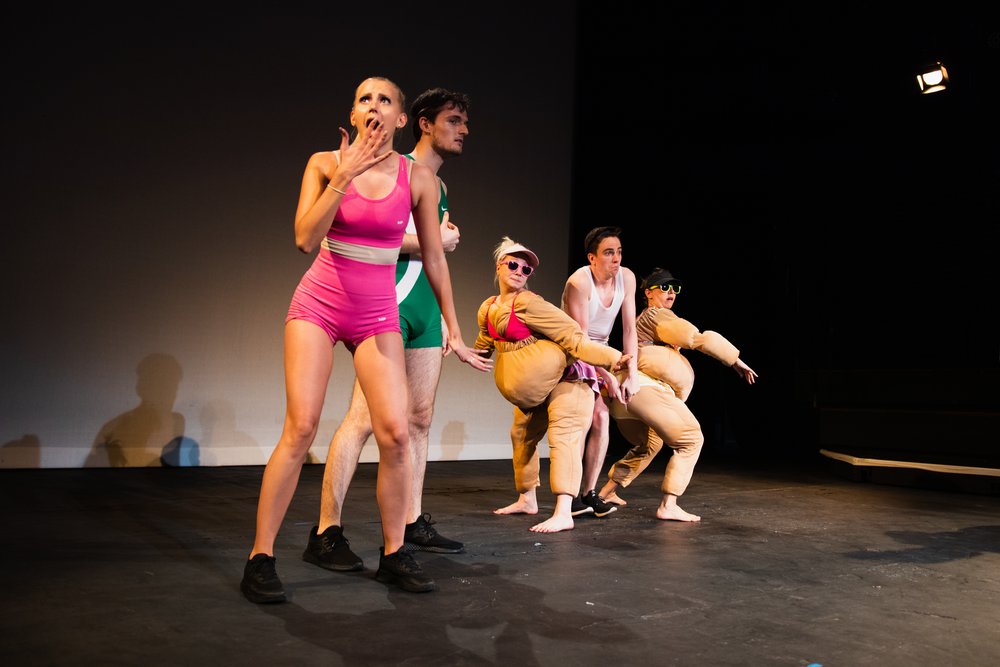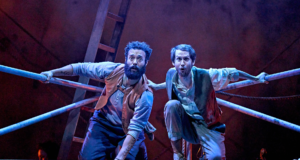Slovak Theatre in London discuss Extreme: The New Normal
One of the joys of fringe theatre in London is how it draws in people from all around the world. Every week it’s possible to see work made by the many foreign nationals who have made their home in London, giving us such a rich mix of cultures that add to the rich tapestry of work available.
Camden Fringe just heightens this, drawing in artists from all over the world, demonstrating just how lucky we are to have so much on our doorsteps. Slovak Theatre in London are one such company, and they are bringing their show, Extreme: The New Norm not just to Camden (22, 23 and 27) but also Edinburgh (4 – 19) this August. So we were honoured when they (Simona Vrabcova; company Director and Producer, along with actors Dalibor Buranda and Simona Gibejova)found a little time to chat to us and answer a few probing questions.
How would you describe Extreme (The New Norm)?
“Reality lightened up with humour,” – devised play Extreme [The New Norm] is inspired by the exact experience that paused our creative work for nearly three years. Pandemic rules brought us contrasting experiences. We couldn’t rely on what would happen in the next hour, let alone in the next month. We found ourselves living beyond the norm. Extremes became the norm. The show reflects on the biggest event of our century, which globally influenced the life of every individual. In a colourful collage of scenes and characters, showing the contrasting situations brought by the pandemic, many times based on true events. Through collaborative devising, by using physical movements, music, and songs, we explore the patterns of behaviour of society and individuals in a time of catastrophe. While this stage of our lives might already seem distant, their artistic treatment emphasizes the experience of crisis rather than the event itself, as it desires to serve as a mirror to challenge opinions and call to new perspectives. Ultimately, the show, filled with both seriousness and humour, offers a collective therapy through art.
Whilst the pandemic is clearly the biggest event to have happened in the past decade, were you ever worried about using it as the basis for a show? Do people want to be reminded of a very strange couple of years?
Whilst we tried to avoid the pandemic as a central plot construct to start with, we soon realised that the one pillar that bears a load of all the different kinds of extremes in our lives is precisely this recent event. We like to think that the theme of the COVID-19 pandemic found us. We remember as we all sat in a circle and started to share our ideas for the new play. When we compared our notes we were surprised to learn that we were all challenged, hurt, or even changed during this dramatic period of time. The pandemic was a springboard for many stories, gags, thoughts and facts that we further explored and mixed together in a wonderful collage of humour, love and storytelling.
It is true that at first some audiences we approached to react to it as something they don’t want to be reminded of but then when we eventually convinced them to see the show they were, as much as we were, surprised by the response and overall emotional exchange and experience. We found that the show is also more humorous than we intended yet keeps the relevant respect to this sensitive topic, it all turns in our favour! Overall, the audience feedback has been amazing so far, which motivated us to participate in fringe.
As the company name suggests, Slovak Theatre in London is run by young Slovak and Czech artists living in London, do you feel living in another country during the pandemic made it an even more difficult experience?
Most of the crew and cast members have lived in the UK for some time. It became our second home, so we are used to the mentality. However, I personally spend the first lockdown in the Czech Republic which is still a foreign country as I am from Slovakia and then the rest of the pandemic in the UK. So, I had three countries to compare. I have to say that comparing the countries’ responses to the crisis, I received the most support from the UK, even financially wise as a self-employed freelancer. This was handled much better than in Slovakia or Czech Republic. What made the experience difficult was the inability to travel and see our families. What was quite interesting to observe was the general lack of support towards creative industries and the segregation of art professions as non-essential. That is one of the first aspects we satirically reflect on in the show.
You’re touring the show across a few countries, how has it been received so far?
Simona G: It was received very well by different audiences across the UK and Europe. Although the majority were Slovak and Czech communities, we had people of different generations and professions visiting our shows, from diplomats to conspiracy theorists, and all of them enjoyed the show. That was satisfying for us as creators because we promote art as a way of connecting rather than dividing people, no matter what your opinion on the issue is, we try to explore the human factor in every situation.
Dalibor: For us actors, it is always an honour to revisit any play, dig deeper into our characters and find new things within the material. The possibility to tour Europe is a big dream-come-true for all of us! It represents a wonderful opportunity to bring the show to a wider audience and other Slovak and Czech communities who made the same choice as we did and decided to live in foreign countries. Many things connect us all on a deeper level – our struggles, choices, and adventures, and our play has been therefore received very positively because people did find themselves in our story.
Are audiences vastly different across different countries, or is there a very universal feel to them all?
Simona V: The responses so far were universal, and to summarise it, people were surprised how much they could laugh about something not so positive while still being able to acknowledge what the pandemic gave or took from them. Some even said they felt nostalgic at times.
Dalibor: Live theatre is the art of the present moment. Every single performance of our show is a little bit different. We are playing a different playhouse every time and this aspect also brings a sense of originality to our play. Our audience also influences our play. Even though it might seem that we all come from somewhere else, and our life stories are so far apart, when you narrow it down, we all experience the same emotions in our lives – only with different sets of circumstances. That’s what theatre and our play is building upon. So, I guess our audience is smart and vulnerable and they like good theatre!
And does the script translate easily, or do you have to rewrite sections for each country?
The main challenge was to come up with two similar versions of our play in both Slovak and Czech as well as the English language and keep the same substance, wit, and jokes in it. But we didn’t want them just to be replicas of each other. And so, we have eventually figured out a way to create two living pieces of theatre paying homage to the original script. Now we are performing in Slovak and Czech for expat communities around Europe and in English for international audiences. It is quite unique as for no one else that Slovaks and Czechs can speak two languages and still understand each other, so the original script is bilingual from the very start.
Is it easy to switch from one language to another then?
Simona G: The difference between languages is allowing us to explore new emotions in the same scene. Situations that are rather mundane in one version can become hilarious in the other.
One time we performed in Slovak one day and in English the next and it was very funny how we all stressed about starting the scene in the correct language!
What do you hope audiences will take away with them from watching Extreme then?
Our artistic approach to this show was to mirror rather than judge and stay as objective as possible. As we claim the show is “a satiric reflection”, and so we reflect sometimes on the most extreme opposite experiences and responses to the pandemic with the aim of finding a universal understanding within society and gently pointing out what really matters at the end of the day (or every crisis). To put it simply, without any further spoilers, we like to leave the final impression on the audience but there are hidden metaphors from the start to the end and one of the key ones would definitely be that we are all more similar than different, seeking to be understood and connected. And where’s the better place to do that than in the theatre? Come to witness it yourself and let us know if we achieved our goal!
Massive thanks to the whole team at Slovak Theatre in London for their time.
Extreme: The New Norm will be playing at EdFringe from 4 – 19 August (tickets here) before returning to London for Camden Fringe where it will play The Water Rats on 22, 23 and 27 August. Tickets available here.
 Everything Theatre Reviews, interviews and news for theatre lovers, London and beyond
Everything Theatre Reviews, interviews and news for theatre lovers, London and beyond
